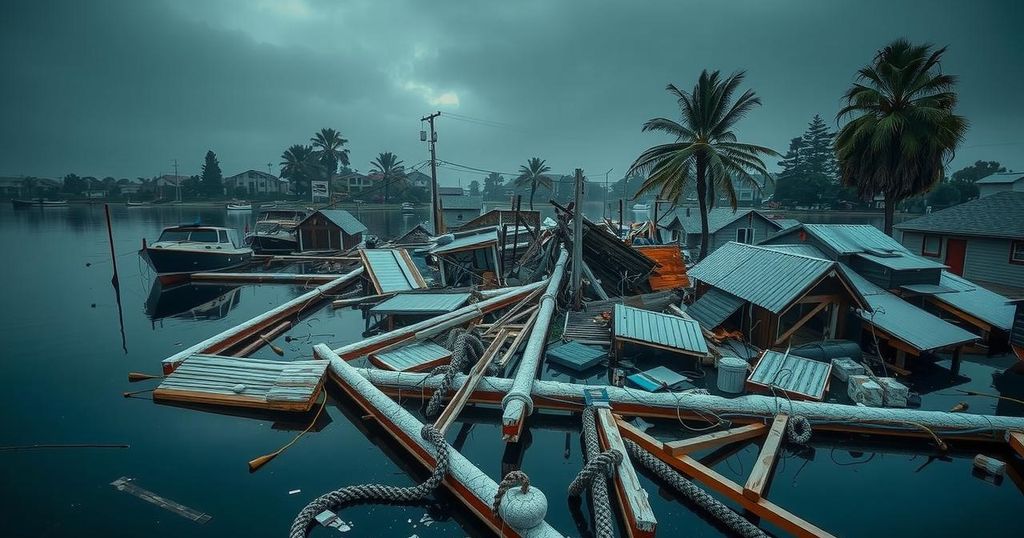Weather
World news
AFRICA, ASHEVILLE, ATLANTIC, BE, BERMUDA, BRIAN MCNOLDY, CARRIACOU, CUBA, DOMINICAN REPUBLIC, EUROPE/ASIA, FLORIDA, GEORGIA, GRENADA, GULF COAST, GULF OF MEXICO, HELENE, HURRICANE, HURRICANE BERYL, HURRICANE SEASON, JAMAICA, KATE, KATRINA, MAINLAND, NATIONAL HURRICANE CENTER, NATURAL DISASTER, NATURAL DISASTERS, NORTH AMERICA, NORTH CAROLINA, OF MIAMI, ORLANDO, RAFAEL, SOUTH AFRICA, SOUTH CAROLINA, TAMPA, TENNESSEE, U. S, U. S. GULF COAST, UNITED STATES, UNIVERSITY, UNIVERSITY OF MIAMI, VIRGINIA
Li Chen
0 Comments
2024 Atlantic Hurricane Season Concludes with Record Damage and Fatalities
The 2024 Atlantic hurricane season ended with 11 hurricanes, a record for damage and fatalities due to extensive tropical storms, prominently Hurricane Helene. Meteorologists highlighted climate change as an influencing factor in unusual storm occurrences, noting that storms like Beryl and Milton broke historical records for strength and timing, leading to catastrophic impacts across the southeastern U.S.
The 2024 Atlantic hurricane season concluded with significant impact, featuring 11 hurricanes, a substantial increase over the average of seven. This season was marked by rampant destruction, particularly along the U.S. Gulf Coast, exacerbated by unexpectedly high ocean temperatures. Notable storms included Hurricane Beryl, which formed as a Category 4 hurricane in June, and Hurricane Helene, which was the deadliest storm since Hurricane Katrina, causing over 200 fatalities and extensive damage across several states. Additionally, Hurricane Milton attained remarkable wind speeds of 180 mph, and Hurricane Rafael approached record strength for November, complicating recovery efforts following prior storms. Meteorologists argue that climate change is influencing hurricane patterns, leading to the occurrence of unprecedented storms at atypical times.
The Atlantic hurricane season, which typically runs from June to November, is heavily influenced by various environmental factors, including ocean temperatures. During this season, meteorologists track the development of hurricanes, which can lead to extensive damage across affected regions. The increasing frequency and intensity of these storms have raised concerns about the role of climate change, particularly the impact of greenhouse gases on ocean temperatures that facilitate stronger hurricane development.
The 2024 Atlantic hurricane season was unprecedented in both the number and intensity of hurricanes, resulting in significant casualties and infrastructure damage across multiple states. This season’s unique weather patterns raise critical questions about the role of climate change in altering hurricane behavior. As research continues to link warming oceans to more severe storms, understanding these dynamics becomes essential for preparedness and response strategies in the face of future hurricane seasons.
Original Source: www.newsday.com




Post Comment